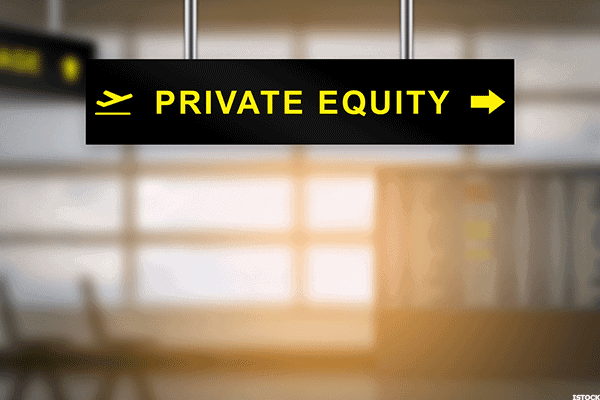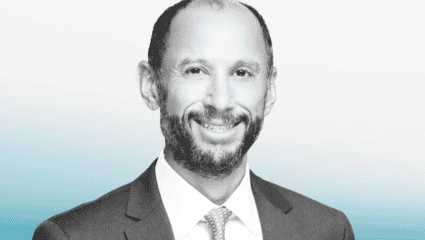Sponsors' Role as Job Creators Remains Hazy

As the 2020 presidential election season gears up, politicians looking to opine on private equity’s effect on the U.S. economy will have plenty of data to tap.
Notably, recent data shows that while there still are many cases in which PE firms load companies with debt, lay people off and pocket profits, often times private equity is helping create jobs. In most cases, it’s a true gray area, at the very least.
With private-to-private buyouts — which comprise the majority of the deals in the study — employment rises 13%, according to a study from six academics working with the Becker Friedman Institute at the University of Chicago entitled The Economic Effects of Private Equity Buyouts. Employment goes up by 10% in the case of secondary buyout deals between two sponsors, the study said.
With other types of transactions, however, such as take-private or carve-out deals, not surprisingly, employment falls by 13% and with transactions such as carve-outs, employment drops by 16%.
“In short, the impact of private equity is more complex and varied than champions or detractors claim,” the study said. “Proponents…see buyouts as engines of efficiency and value creation, fueled by the concentrated ownership of target firms, and high-powered financial incentives. Critics see the same features as harmful to targets and their workers and a source of systemic risk.”
The authors conclude that they found “strong support for the engines-of-efficiency” view in the most prevalent deal types — secondary private equity deals and acquisitions of standalone private companies. The authors of the study include Steven J. Davis of the University of Chicago, John Haltiwanger of the University of Maryland, Kyle Handley of the University of Michigan, Ben Lipsius of the University of Michigan, Josh Lerner of Harvard University and Javier Miranda of the U.S. Census Bureau.
The Economic Effects study took a close look at roughly 9,800 buyouts by U.S. firms from 1980 to 2013 in their first two years. In addition to job affects on private-to-private, secondary and take-private deals, the study found that, overall, the average employment affect by private equity comes out to a “statistically insignificant” negative 1.4%, the study said.
The study carried the caveat that these statistics also vary widely based on the sector and buyout type, in a addition to leverage levels.
“With respect to employment and wage effects of buyouts, our evidence is mixed and contingent of deal type,” the study said. “The post-buyout performance of target firms also varies with external credit and macroeconomic conditions.”
Talk of private equity’s effects on the economy come as candidates gear up for the 2020 presidential election, where jobs growth and the strength of the overall economy are expected to be top of mind, just as they were in 2016.
Among the people voicing concerns is democratic presidential candidate Sen. Elizabeth Warren, who has been rising in the polls. She’s already proposed a measure to tax carried interest as income rather than a capital gains, which would hike the tax rate to as high as 37% rather than 23.8% under current regulations.
The Economic Effects study, while not overly negative, drew criticism from industry chieftains.
Blackstone Group Inc. (BX) CEO Stephen Schwarzman said in a published interview that the study’s focus on the first two years of portfolio company ownership leaves out the most productive time during years three, four and five of a typical portfolio company hold period.
“You always get a company that has more jobs at the end of five years than you started with after the first year or two, because that’s how you make money,” Schwarzman said in the interview last month.
He also blew the firm’s economic impact horn again during its latest quarterly call with analysts on Oct. 23 by pointing out that Blackstone Group has added more than 100,000 net jobs in the past 15 years.
“The very strong returns we generate, particularly in the current low interest rate environment, enable teachers, police officers, and other public and corporate sector employees to retire with sufficient savings and secure pensions,” Schwarzman said. “We achieve these results for our LPs by improving the companies and assets in our portfolio and making them better places to work.”
Elsewhere in the industry, a report on the private equity performance by the Public School Employees’ Retirement System (PSERS) released Oct. 10 shows the asset class in a more positive light.
This year, the pension system estimated at least 725,000 net jobs created in its private equity portfolio since it started investing in the asset class in the early 1990s. The 725,000 figure reflected job numbers PSERs received from only 81 out of the 223 private market funds that responded to the survey.
As of Dec. 31, PSERS held $8.2 billion in net asset value via 223 active private funds managed by 71 GPs.
The top 20 exposure rankings by general partner at PSERS is led by Bridgepoint Capital Ltd. with $759 million, Platinum Equity Partners LLC with $741 million and Strategic Partners with $623 million. These top three holdings have generated healthy internal rates of return for the retirement system of 15.2%, 29.7% and 17.2%, respectively. All told, the PSERS private markets portfolio has generated an IRR of 11.84% over the past 10 years, in a boost to the retirement savings for many Pennsylvania workers.
Separately, the American Investment Council commissioned a study by EY released last month, entitled, Economic Contribution of the U.S. private equity sector in 2018. Last year, the PE sector employed 8.8 million workers with $600 billion in wages. All told, PE contributed about $1.1 trillion or 5% of U.S. GDP.
“Private equity keeps getting better at what it does and [The Economic Effects of Private Equity Buyouts] study doesn’t reflect more recent transactions,” said one senior private equity executive.
Despite these and other data points, the idea of PE firms loading companies up with debt, laying people off and pocketing profits remains tough to dislodge in popular sentiment.
A particularly notorious time for private equity came during the 2012 presidential campaign, when candidate Mitt Romney, co-founder of Bain Capital, made a gaffe: “I like being able to fire people who provide services to me” in a comment expressing his support for consumer choice in health insurance.
While M&A deal making in private markets will continue regardless of the public image of private equity, the hearts and minds of voters will affect the politicians and policy makers shaping regulations, taxes and other crucial components of the PE playing field. This latest cache of studies will no doubt be followed by more data to come, both positive and negative.
Editor’s note: The original version of this article, including advisers and other details, was earlier published on The Deal’s premium subscription website. For access, log in to TheDeal.com or use the form below to request a free trial.
This Content is Only for The Deal Subscribers
If you’re already a subscriber, log in to view this article here.



